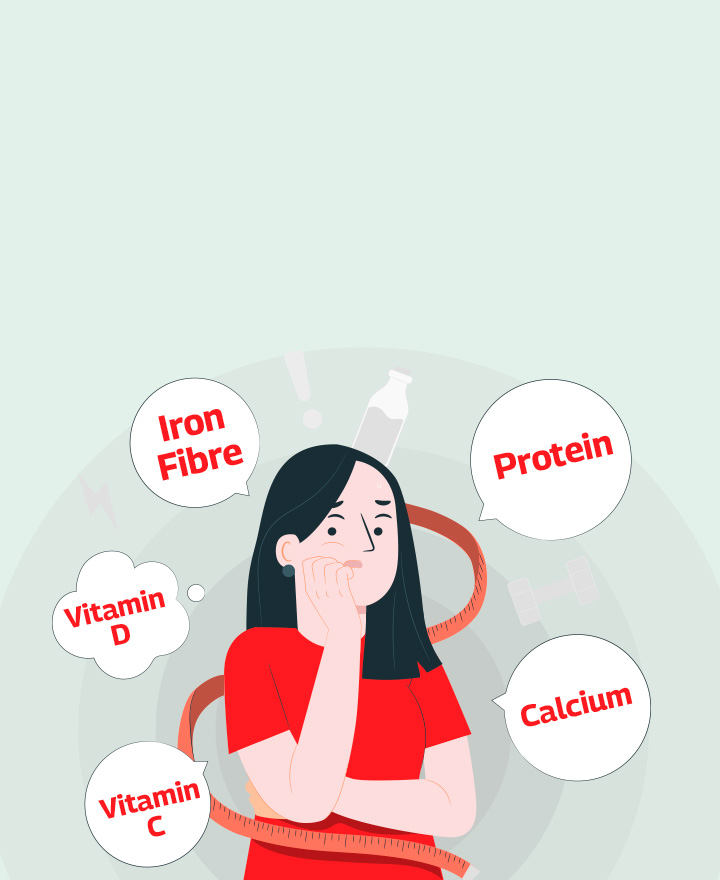

What is the Nutritional Value of Lychee?
Famous for its vibrant colour, spiky appearance, and sweet taste, tropical fruit lychee is a rich source of vitamin C, copper, potassium, and essential minerals crucial for boosting immunity and improving skin health. Lychees are also rich in antioxidants like Epicatechin and Rutin that potentially reduce the risks of chronic diseases. The presence of fibre in lychee promotes digestion, while its polyphenols may improve cardiac health. However, lychee’s servings should be in moderation as its high sugar can complicate health concerns. By understanding the nutritional value of lychee, individuals can incorporate it into their diet appropriately for potential health advantages. Read on to know more.
Nutritional Profile of Lychee
Lychee primarily comprises water (around 82%) and carbohydrates (approximately 16.5%). They are a nutritious additional to a balanced diet, offering vitamins, minerals, antioxidants, and potential health benefits.
1. Vitamins and Minerals:
Lychees are an excellent source of vitamins and minerals crucial in various regular body functions. Here are some key nutrients —
• Vitamin C:
Lychee is a powerhouse of vitamin C, with a single serving offering nearly 9% of the recommended daily intake. This vital nutrient promotes collagen production for healthy skin, boosts immunity, and acts as a potent antioxidant.
• Copper:
Lychee contributes a decent amount of copper, which is essential for maintaining heart health and proper iron utilisation.
• Potassium:
Lychees are also a rich source of the mineral potassium; hence, consuming lychees regulates blood pressure and contributes to healthy muscle function.
Lychees also contain small amounts of other essential vitamins and minerals, including zinc, folate, iron, and magnesium.
2. Antioxidants and Phytochemicals:
Lychee are a rich source of antioxidants, the natural compounds that shield cells from damage caused by free radicals. These free radicals can result in severe ailments if left untreated. Lychee is particularly rich in —
• Epicatechin:
This flavonoid may support heart health and potentially reduce the risk of cancer and diabetes.
• Rutin:
Another important flavonoid, rutin, protects against chronic illnesses like heart disease, diabetes, and cancer.
Lychees also contain various other antioxidant and phytochemical compounds contributing to overall health benefits.
3. Fiber:
Lychees contain a moderate amount of dietary fiber, which is beneficial for digestive health and may regulate blood sugar levels
4. Hydration:
Lychees have a high water content, which can help keep you hydrated.
5. Low in Calories:
Lychees are relatively low in calories as compared to many other fruits.
Nutritional Content of Lychees
The nutritional value per 100-gram of serving includes:
• Calories: approx 66 kcal
• Carbohydrates: around 16.5 grams (including 15.2 grams of sugar)
• Protein: about 0.8 grams
• Fat: 0.4 grams
• Fiber: approx 1.3 grams
Lychee is naturally low in fat and protein but contains a significant amount of sugar. This is something to consider, particularly for individuals with blood sugar concerns.
Health Benefits
Vitamins, minerals, and antioxidants in lychee offer several health benefits —
• Supports Immune System:
Lychee's high vitamin C content bolsters the immune system, enhancing the function of white blood cells that fight infections.
• Enhances Digestive Health:
The presence of dietary fibre in lychee promotes regular bowel movements and aids in digestion.
• Promotes Heart Health:
Polyphenols found in lychee contribute to lowering blood pressure, improving cholesterol levels, and decreasing inflammation, all factors beneficial for heart health.
• Improves Skin Health:
Lychees contain Vitamin C, which helps synthesise collagen and elastin, promoting skin elasticity and reducing signs of ageing.
Conclusion
The nutritional value of lychee extends far beyond its refreshing taste. By incorporating lychee into your diet in moderation, you can unlock its nutritional power while enjoying its unique flavour.
One of the important components of our overall wellness is also being financially secured. Healthcare emergencies can happen any time, but a good health insurance policy can protect you from such uncertain situations. To know more about Wellness and other health related tips, visit the wellness corner.
Source: verywellhealth.com, healthline.com, webmd.com, medicalnewstoday.com, nutritionvalue.org, lybrate.com
Disclaimer: This blog provides general information and discussions about health and related subjects. The information and other content provided in this blog, website or in any linked materials are not intended and should not be considered, or used as a substitute for, medical advice, diagnosis or treatment. Kindly contact your Doctor before starting a new medicine or health regime.
Related Articles
What To Eat For Healthier Aging? Here's How Your Nutritional Needs Change As You Age
Essential Nutrients & Its Importance For A Healthy Pregnancy
Nutrient-Rich Foods For A Healthy Pregnancy
Avocado: Nutrition And Health Benefits
Published on July 26, 2024














 Health Insurance
Health Insurance  Travel Insurance
Travel Insurance  Car Insurance
Car Insurance  Cyber Insurance
Cyber Insurance  Critical Illness Insurance
Critical Illness Insurance
 Pet Insurance
Pet Insurance
 Bike/Two Wheeler Insurance
Bike/Two Wheeler Insurance  Home Insurance
Home Insurance  Third Party Vehicle Ins.
Third Party Vehicle Ins.  Tractor Insurance
Tractor Insurance  Goods Carrying Vehicle Ins.
Goods Carrying Vehicle Ins.  Passenger Carrying Vehicle Ins.
Passenger Carrying Vehicle Ins.  Compulsory Personal Accident Insurance
Compulsory Personal Accident Insurance  Travel Insurance
Travel Insurance  Rural
Rural